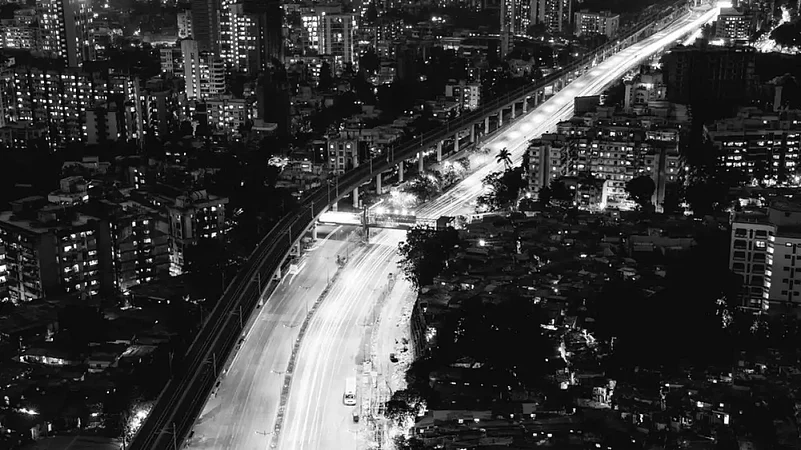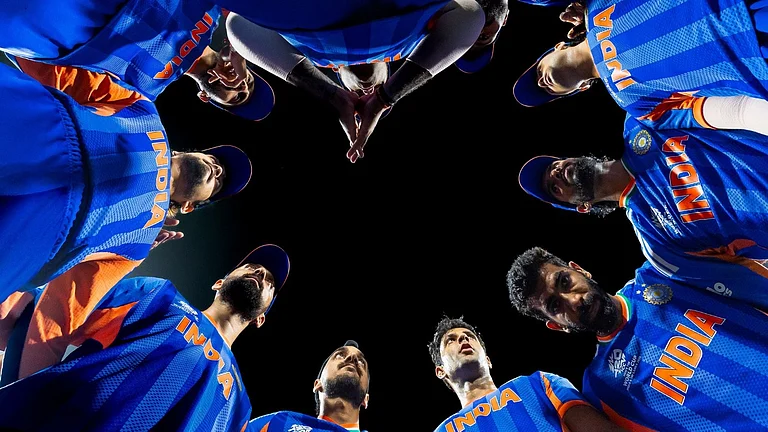March 21 was declared as World Poetry Day by UNESCO during its 30th General Conference in Paris in 1999, with the aim of ‘supporting linguistic diversity through poetic expression and increasing the opportunity for endangered languages to be heard’. It is the occasion to honour poets and their work. In this series to mark the day, Outlook showcases the works of those who revel in ‘one of humanity’s most treasured forms of cultural and linguistic expression and identity.’
The city rises like needles
piercing into the azure
limbs of the sky.
Even its gaseous blue skin,
when poked thus, bleeds.
Splattering it red
across the realm, evening falls
like an exhausted pair of hands.
Petal-soft hands
turn into tightly clenched
fists in the thicket
of darkness.
Tired feet falter back to home.
False starts reach nowhere.
Broken hearts go haywire.
The city is a giant serpent
slowly uncoiling itself
standing firm on its own tail
flicking its forked tongue
licking people
under its hypnotic spell.
At night, tall buildings
look like lighted postboxes.
People fold themselves
like paper into envelopes
dropping dead
on their beds
only to resurrect and run amok
just to remain
in the same exact place.
The title of the poem has been taken from a photo caption by Chinki Sinha. Durga Prasad Panda is a bilingual poet and critic. He edited a Reader on eminent poet Jayanta Mahapatra for the Sahitya Akademi.






















